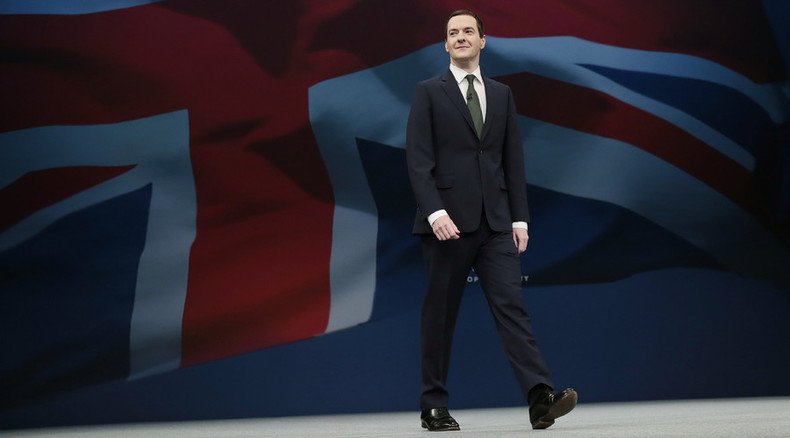Govt prepares to battle rebellious Lords over tax credit cuts

Downing Street is heading towards a clash with the House of Lords over Chancellor George Osborne’s controversial plans to cut tax credits, amid fears the reforms will have a disastrous effect on the most vulnerable.
Ahead of a potentially drastic fatal motion in the House of Lords to block the changes, Education Secretary Nicky Morgan became the first cabinet minister to suggest that the government may try to soften the effects of the cuts.
The most recent analysis of the proposed changes to the tax credit system suggested that 67 percent of recipients would be worse if the measures were passed. In total the cuts to tax credits amount to £4.4 billion (US$6.75 billion) of Osborne’s total planned cuts of £12 billion.
Many getting "Workie-d up" by IDS' £8.5m for fuzzy purple monster as he slashes benefits https://t.co/BvChvChWm5pic.twitter.com/GbF6Tnu74Z
— RT UK (@RTUKnews) October 21, 2015In the face of pressure from the House of Lords, who may pass a fatal motion on Monday to block the changes, Morgan said the chancellor could take action to mitigate the effects of the changes.
Her remarks were designed to persuade the cross-party peers not to vote against the cuts, saying it would cause a constitutional crisis.
Conservative peers currently do not hold a majority in the House of Lords, meaning that the cross-party peers hold the balance of power.
Osborne was said to be in “listening mode” on Monday about the impacts of his proposed changes.
If the rebellious Lords vote to pass a fatal motion, the plans will be blocked, and there are fears the move would set a precedent for the Lords to become more involved in law-making decisions.
Spurned Tories threaten to suspend House of Lords over tax credit rebellion https://t.co/WipyFtbKphpic.twitter.com/Gn3SbMjbh4
— RT UK (@RTUKnews) October 20, 2015Instead there are hopes the cross-party peers will vote for a “regret motion,” which means that while the plans are not blocked completely, the Chancellor will be expected to modify his plans.
Former Deputy Prime Minister Lord Heseltine told Sky news that the rebellious Lords were “playing with fire,” adding that it would be an unprecedented decision to block the cuts.
During Morgan’s attempt to dissuade the Lords to use a fatal motion, she told the BBC that Osborne was open to discussion.
“I was a Treasury minister in the last parliament, George was my boss at that point, he very much is always in listening mode,” she said.
She added that there would be no alteration to the main policy, but that action may be taken to soften the blow of the cuts.
“The prime minister has made it clear that the policy is not going to change,” she said.
“But the chancellor’s track record has been very much about supporting budgets in working families. MPs have voted three times to support these measures – in the budget, we had a vote in September. We had a vote last week as well.”
The Electoral Reform Society suggested that if Prime Minister David Cameron is defeated over tax credits, he should reform the House of Lords, rather than creating enough Tory peers to produce a compliant majority.
"If the prime minister is worried about a constitutional crisis following today’s House of Lords votes, he should reform the chamber so that it’s elected – instead of trying to pack it with pliant Peers," executive Darren Hughes said on Monday.
We need a fairly-elected upper chamber that has a clear definition of its responsibilities – instead of the government claiming that an unelected upper chamber is a wonderful revising body, but then threatening to pack it with cronies if it doesn’t vote the way Ministers want it to.












